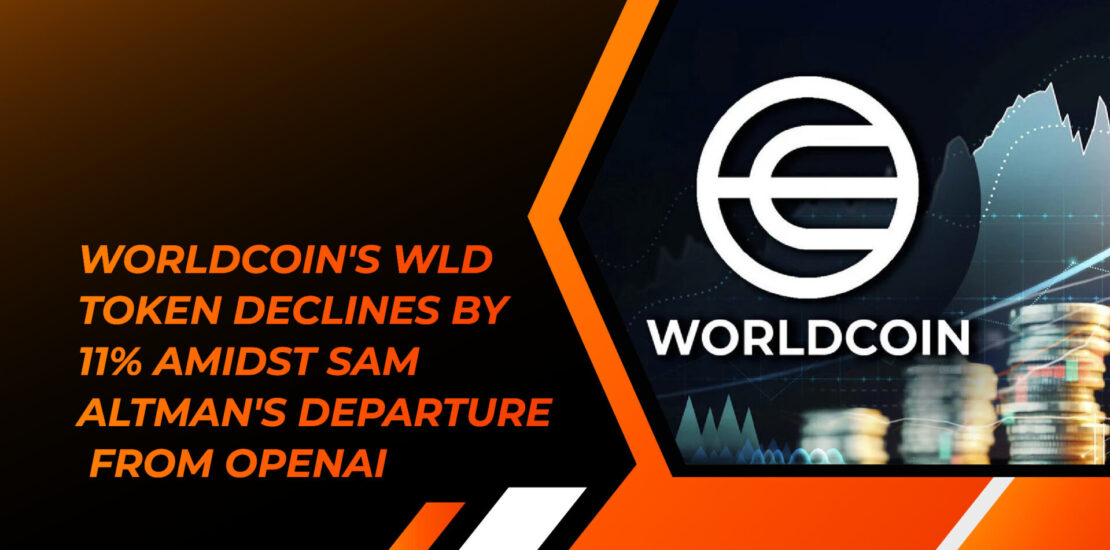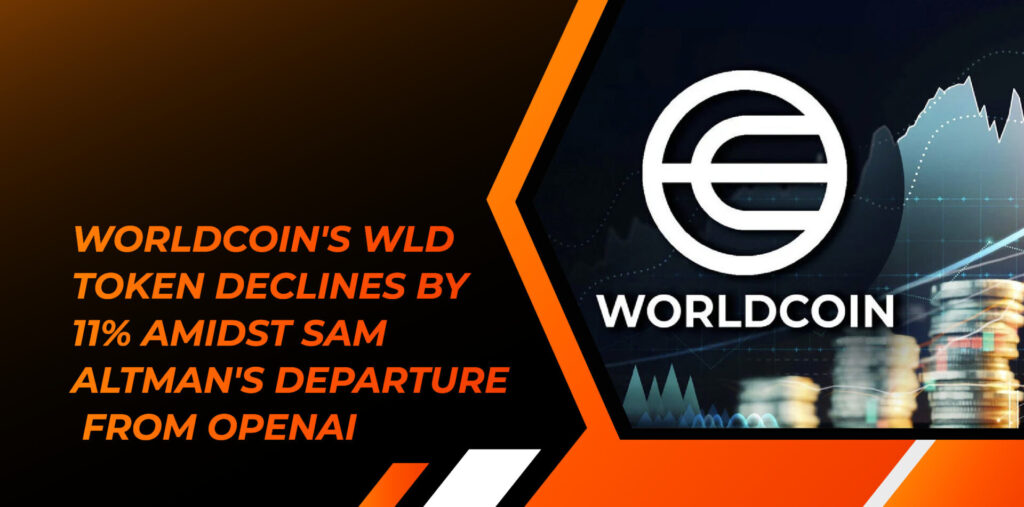- November 19, 2023
- Posted by: [email protected]
- Category:


The recent tumultuous events surrounding Sam Altman’s departure from OpenAI have sent shockwaves through the Worldcoin (WLD) ecosystem, triggering a significant and abrupt decline in the value of the WLD token. At the time of this analysis, WLD is grappling with a valuation of $1.86, representing a sharp 13% drop in the past 24 hours, according to data sourced from CoinGecko. This downturn is particularly noteworthy given that it constitutes a substantial 42% decrease from the token’s all-time high of $3.30, achieved during the milestone moment of Worldcoin emerging from beta back in July.
The crypto market, always sensitive to influential figures and significant events, has seen the WLD token experience a substantial drop in trading volume. Over the last 24 hours, trading activity for WLD reached $141 million, with a significant portion stemming from the WLD and Tether (USDT) trading pair on Binance.
Sam Altman, one of the founding figures behind Worldcoin, has recently faced challenges in his role as the CEO of OpenAI, ultimately resulting in his departure due to alleged communication deficiencies impacting the board’s confidence in his leadership. The repercussions of Altman’s exit have been most keenly felt in the Worldcoin ecosystem, with the WLD token bearing the brunt of the market’s response.
Curiously, the broader AI coin and token category, as measured by CoinGecko, has not mirrored the declines seen in WLD. In the same 24-hour period, the overall market cap for AI coins has actually expanded by a substantial 30%, reaching an impressive $5.4 billion. This discrepancy highlights the unique and isolated impact that Altman’s departure appears to have had on Worldcoin.
Worldcoin, a project developed by Tools for Humanity with a presence in San Francisco and Berlin, has pursued a novel approach to cryptocurrency. The project’s primary objective is to authenticate human identity online through a mechanism known as World ID. Employing iris scanning through distinctive orb-shaped devices, the platform aims to mitigate issues related to bots and fake identities, rewarding users with Worldcoin tokens. The inspiration for this approach is rooted in the concept of universal basic income.
WLD, the native token of Worldcoin, operates on the Ethereum blockchain. Despite not being available in the U.S., the project has deployed its iris-scanning orbs in various locations, including New York, San Francisco, and Atlanta.
However, Worldcoin has not been without its share of controversy. Previous reports from the MIT Technology Review accused the project of acquiring its initial user base through deceptive means, worker exploitation, and cash incentives. Moreover, concerns have been raised by governments, including the U.K., Germany, France, and notably Kenya, leading to the suspension of Worldcoin’s enrollment in some regions.
In August, a significant event unfolded in Nigeria, where law enforcement agencies raided a Worldcoin warehouse in the capital city of Nairobi. This raised serious legal questions about the project, prompting investigations in both Kenya and Argentina to assess the legality of Worldcoin’s data collection practices.
Despite these challenges and controversies, Worldcoin officially transitioned out of beta in July 2023, marking a significant milestone in its development. However, Altman’s departure has now cast a shadow over the project, with its native token, WLD, experiencing a sharp decline in value as market participants respond to the uncertainties surrounding its leadership and future trajectory.



